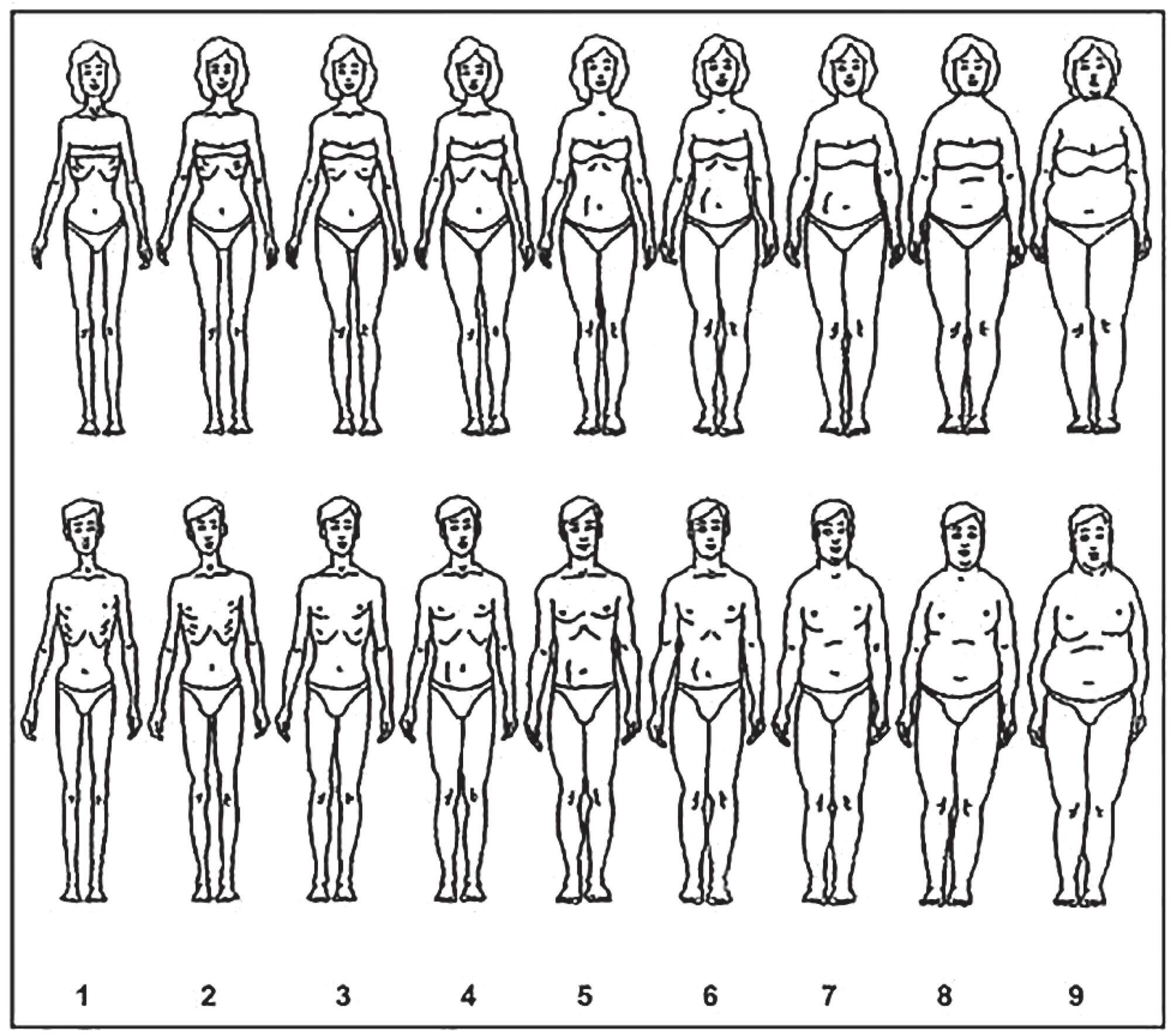-
01-01-2018
Needs in Mental Health and Research
Revista Brasileira de Enfermagem. 2018;71:2077-2078
Abstract
Needs in Mental Health and Research
Revista Brasileira de Enfermagem. 2018;71:2077-2078
DOI 10.1590/0034-7167-2018-0363
Views0Psychic suffering is a public health problem in the world because it is strongly related to the loss of functionality, and to the presence of drastic reflexes in personal life and in the social context. Psychic suffering presents as determinants not only the abilities of individuals to deal with thoughts, emotions, behaviors, interactions, but also […]See morePlumX Metrics
- Citations
- Citation Indexes: 2
- Usage
- Full Text Views: 2489
- Abstract Views: 30
- Captures
- Readers: 14
-
01-01-2018
Necessidades em saúde mental e pesquisa
Revista Brasileira de Enfermagem. 2018;71:2077-2078
Abstract
Necessidades em saúde mental e pesquisa
Revista Brasileira de Enfermagem. 2018;71:2077-2078
DOI 10.1590/0034-7167-2018-0363
Views0O sofrimento psíquico é um problema de saúde pública no mundo pois está fortemente relacionado à perda de funcionalidade, à apresentação de reflexos drásticos na vida pessoal e no contexto social. Dessa forma, apresenta como determinantes não somente as habilidades dos indivíduos para lidar com pensamentos, emoções, comportamentos, interações, mas também aspectos relacionados à vida […]See morePlumX Metrics
- Citations
- Citation Indexes: 2
- Usage
- Full Text Views: 2489
- Abstract Views: 30
- Captures
- Readers: 14
-
REFLECTION01-01-2018
Ethical competences for the development of nursing care
Revista Brasileira de Enfermagem. 2018;71:1810-1814
Abstract
REFLECTIONEthical competences for the development of nursing care
Revista Brasileira de Enfermagem. 2018;71:1810-1814
DOI 10.1590/0034-7167-2017-0539
Views0See moreABSTRACT
Objective:
To present an analysis of the nursing ethos based on the disciplinary foundations of nursing to propose a definition of ethical competences for nursing training.
Method:
The present proposal is a theoretical reflection, based on a literature review of the specialty, both nursing and ethics.
Results:
we suggest basing the ethical education of nursing students integrating transversally disciplinary, bioethical and civic ethical competences, considering certain educational dimensions that favor their development.
Final considerations:
We expect that the definitions of three competences of the moral scope of nursing, contribute to cross-cutting proposals that promote the values and principles of the profession.
PlumX Metrics
- Citations
- Citation Indexes: 10
- Usage
- Full Text Views: 6693
- Abstract Views: 369
- Captures
- Readers: 125
-
01-01-2018
Competencias éticas para el desarrollo del cuidado en enfermería
Revista Brasileira de Enfermagem. 2018;71:1810-1814
Abstract
Competencias éticas para el desarrollo del cuidado en enfermería
Revista Brasileira de Enfermagem. 2018;71:1810-1814
DOI 10.1590/0034-7167-2017-0539
Views0See moreRESUMEN
Objetivo:
Presentar un análisis del êthos de enfermería en base a los fundamentos disciplinares de ésta, a fin de proponer una definición de competencias éticas para la formación en enfermería
Método:
La presente propuesta es una reflexión teórica, fundamentada en una revisión de literatura de la especialidad, tanto de enfermería como de la ética.
Resultados:
se sugiere basar la formación ética de estudiantes de enfermería integrando transversalmente competencias éticas disciplinares, bioéticas y cívicas, considerando determinadas dimensiones educativas que favorecen su desarrollo.
Consideraciones finales:
Se espera que las definiciones de tres competencias del ámbito moral de la enfermería, contribuyan a propuestas transversales que logren fomentar los valores y principios de la profesión.
PlumX Metrics
- Citations
- Citation Indexes: 10
- Usage
- Full Text Views: 6693
- Abstract Views: 369
- Captures
- Readers: 125
-
REFLECTION01-01-2018
The professor’s body: discourses on subjectivity to reflect on nurses’ education
Revista Brasileira de Enfermagem. 2018;71:1805-1809
Abstract
REFLECTIONThe professor’s body: discourses on subjectivity to reflect on nurses’ education
Revista Brasileira de Enfermagem. 2018;71:1805-1809
DOI 10.1590/0034-7167-2017-0456
Views0See moreABSTRACT
Objective:
to reflect on the body of the nursing professor in the subjectivity discourse.
Method:
this is a reflective essay on the theoretical and practical reverberations of the nursing professor’s body based on the Deleuzoguattarian discourse.
Results:
in the theoretical framework, the body of the nursing professor was considered as a producer of subjectivities and understood without organs, surrounded by strengths, desires, and affections. In the practical framework, we discussed pedagogical strategies developed by professors, such as dramatic games, simulated scenes, presentation of the line of care and living portfolio, characterized by stimulating nursing students to value political, civic, creative, and supportive dimensions.
Conclusion:
based on the subjectivity discourses, the professor’s body was demystified as uniquely holder of knowledge, and all participants in the educational scenario were considered active protagonists of collective knowledge.
PlumX Metrics
- Citations
- Citation Indexes: 3
- Usage
- Full Text Views: 1132
- Abstract Views: 134
- Captures
- Readers: 36
-
EXPERIENCE REPORT01-01-2018
Nursing students in the community: entrepreneurial strategy and proponent of changes
Revista Brasileira de Enfermagem. 2018;71:1799-1804
Abstract
EXPERIENCE REPORTNursing students in the community: entrepreneurial strategy and proponent of changes
Revista Brasileira de Enfermagem. 2018;71:1799-1804
DOI 10.1590/0034-7167-2017-0382
Views1See moreABSTRACT
Objective:
To report the insertion of the nursing students of the Franciscan University Center in the community through the project Adopting a Family, contributing to critical thinking within the Nursing academic production and its articulation to collective health.
Results:
In the professors’ evaluation, the activity represented an effective articulation and insertion of the university in the community; for the students, it allowed for spaces of construction, deconstruction and negotiation with the unknown and the uncertain; for the families, it enabled the feeling of being remembered and valued as human beings and citizens. Through the experiences had, the transformation of health practices goes through the emergence and valuation of new knowledge.
Final considerations:
The insertion of the university in the community is constituted by an entrepreneurial strategy that is proponent of changes, due to its more effective and resolute outreach of health issues proposed by the national health system.

-
EXPERIENCE REPORT01-01-2018
From theory to practice, operating the clinical simulation in Nursing teaching
Revista Brasileira de Enfermagem. 2018;71:1791-1798
Abstract
EXPERIENCE REPORTFrom theory to practice, operating the clinical simulation in Nursing teaching
Revista Brasileira de Enfermagem. 2018;71:1791-1798
DOI 10.1590/0034-7167-2017-0180
Views0See moreABSTRACT
Objective:
To report the experience of the operationalization of clinical simulation as a pedagogical strategy in a subject of an undergraduate course in Nursing.
Method:
Clinical simulation cycles were carried out following the steps of action research, such as: planning, action, observation and reflection, from March 2014 to July 2015 with 10 professors and 44 students from a Primary Care and Mental Health subject of an undergraduate course in Nursing.
Results:
Five cycles of clinical simulation were performed, at the end of each cycle modifications were suggested by students and professors and the operation was adjusted to meet the needs of the subject. The main points of change were: professor role, logistics, equipment, debriefing model and preparation of “simulated patients”.
Final considerations:
The clinical simulation is a possible method to be operationalized in undergraduate course in Nursing, needs pedagogical and logistic planning as well as, sensitization of professors and students.
PlumX Metrics
- Citations
- Citation Indexes: 33
- Usage
- Full Text Views: 5402
- Abstract Views: 240
- Captures
- Readers: 144
- Mentions
- News Mentions: 1

-
EXPERIENCE REPORT01-01-2018
Clinical simulation to teach nursing care for wounded patients
Revista Brasileira de Enfermagem. 2018;71:1785-1790
Abstract
EXPERIENCE REPORTClinical simulation to teach nursing care for wounded patients
Revista Brasileira de Enfermagem. 2018;71:1785-1790
DOI 10.1590/0034-7167-2017-0170
Views0See moreABSTRACT
Objective:
to report the experience of constructing and applicating clinical simulation scenarios for the evaluation and treatment of wounds.
Method:
experience report on two simulation scenarios for nursing care of wounded patients applied to nursing undergraduates. We structured simulations based on the model from the National League for Nursing/Jeffries Simulation Framework. The scenarios were evaluated by the instrument Simulation Design Scale and the students by the experience with the simulation.
Results:
the scenarios reproduced nursing care situations with the application of role play and moulage, which allowed us to evaluate and discuss the wound treatment. Reflections on the debriefing were important for the teaching-learning process and association between theory and practice, these factors determined the satisfaction of students with the activity.
Conclusion:
using clinical simulation scenarios to teach students favored the clinical reasoning and decision-making in the evaluation and treatment of wounds.
PlumX Metrics
- Citations
- Citation Indexes: 20
- Usage
- Full Text Views: 4818
- Abstract Views: 222
- Captures
- Readers: 170
Search
Search in:
Nuvem de Tags
Enfermagem (930)Cuidados de Enfermagem (269)Atenção Primária à Saúde (239)Idoso (208)Educação em Enfermagem (151)Segurança do Paciente (150)Saúde Mental (145)Educação em Saúde (139)Estudos de Validação (131)Qualidade de Vida (104)Tecnologia Educacional (100)Promoção da Saúde (99)COVID-19 (91)Criança (91)Família (87)Enfermagem Pediátrica (86)Saúde do Trabalhador (86)Adolescente (85)Saúde Pública (82)Estudantes de Enfermagem (77)












